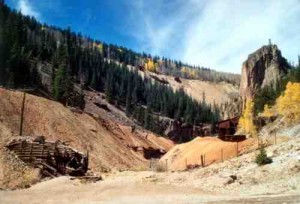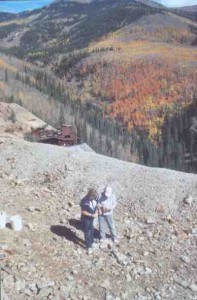Brief by Central Staff
Energy – July 2006 – Colorado Central Magazine
The Cotter uranium mill in Cañon City and its feeder mines on the Western Slope have been on standby for most of this year. Citing high fuel costs and low ore quality, the company laid off nearly 50 miners and about 80 people who worked at the mill.
Now the company is in negotiations to supply reactor fuel for Japanese utilities, and if it receives an export license from the federal government, it could resume production in the near future.
The mines are in the Montrose area, and the ore was shipped by truck on U.S. 50 to Cañon. On Feb. 15, a truckload of ore tipped over near Wellsville, just east of Salida. The highway was closed for five hours so that a hazardous materials crew could spray the spill.
The ore is not especially radioactive, since it contains only about 1% uranium, but state health officials were concerned that people might inhale dust from the spill. Thus the spraying and the highway closure.
We really don’t need more highway closures, so here’s a suggestion for the regulators: Require the uranium ore to be shipped by rail.
Even with the Tennessee Pass line out of service, there’s still a working rail route from Montrose to Grand Junction to Denver to Pueblo to Cañon City.
An accident is much less likely on the tracks; a U.S. Department of Transportation report for 1999 stated that railroads suffer 11.8 hazardous materials incidents per billion ton-miles, while trucks have 128.4 — that is, trucks are 11 times more dangerous in this regard.
And if material is spilled on the rails, it might be at enough distance from the highway so that the road wouldn’t have to be closed.
Given that, we can’t see any reason for our state to allow heavy trucks of hazardous materials to block our highways.


